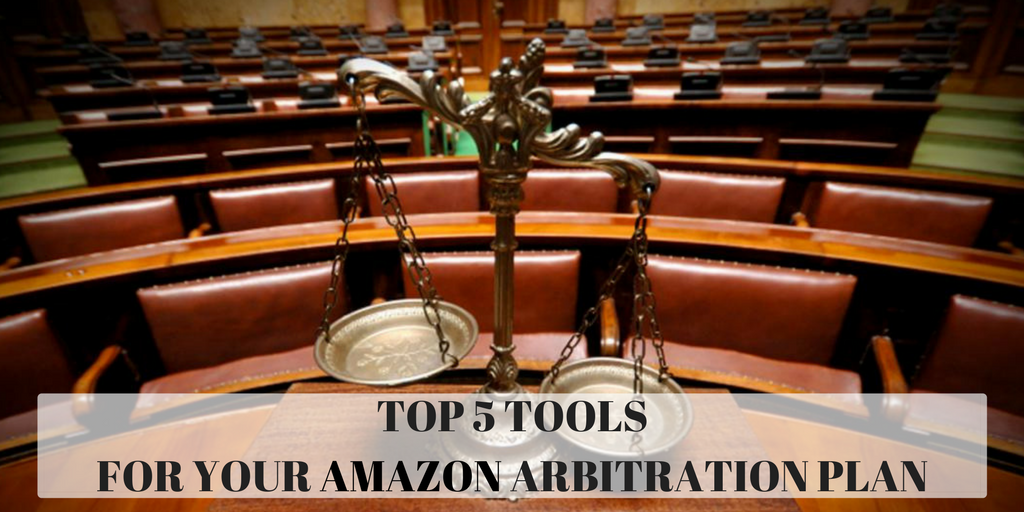Take the Decision Out of Amazon’s Hands:
5 Tools for Your Amazon Arbitration Plan

To win your arbitration against Amazon, you need to have an Amazon Arbitration Plan or “AAP.” Your Amazon Arbitration Plan should take into account and streamline what works at traditional trials.
You Must Have a Trial Lawyer that Also Knows Amazon if You Want to Win Your Arbitration
First, never ever hire a corporate lawyer to represent you in an Amazon Arbitration. If you want to win your case, you MUST have a lawyer with extensive trial experience and who has experience with Amazon. If your lawyer lacks either of these skills, you have the wrong lawyer.
Planning to Win Your Arbitration: You Must Have an Amazon Arbitration Theme
Experienced Trial Lawyers know what you need to win your arbitration. First, Amazon Sellers need an Amazon Arbitration Plan. Winning Amazon Arbitration Plans should have a theme. Your theme is the overriding reason why the arbitrator should find in your favor. A great theme to apply in Amazon arbitrations is that “Fairness Requires Reinstatement.”
Everything that you present to the arbitrator can fit into this theme. For example, after months or even years of making Amazon money on Amazon with near flawless Order Defect Rate or feedback and a limited or single policy violation: Fairness Requires Reinstatement. Another example is that after Amazon loaned you the money to buy your inventory only to send it to Amazon’s FBA where they charged you interest and storage fees: Fairness Requires Reinstatement so that you can sell the goods and pay off the debt. Again, if Amazon is unwilling to show how or why they think you have multiple accounts: Fairness Requires Reinstatement because nobody should lose their business without proof of wrongdoing.
Winning Your Amazon Arbitration: Use of Storytelling to Win your Amazon Arbitration
Trial lawyers also know that you win cases by telling compelling stories. Story telling is how people of taught and communicated since the middle ages. What is your Amazon Story?
One Amazon seller’s story might be about how she made herself and Amazon money for years by Retail Arbitrage. Then, Amazon suddenly changed the tide without warning and her receipts (verifying authenticity) were no longer accepted. She was suspended from selling based on Amazon’s unilateral decisions and now her mortgage is behind. While it might be factually irrelevant, it might be highly persuasive for the arbitrator to know that Amazon also withheld rightfully earned profits during the time when the seller needed them most.
Storytelling is similar to a theme but it encompasses more. Storytelling fills in the factual basis for the theme to apply. Storytelling is also a tool of persuasion. Using the example of a woman experienced in retail arbitrage, when the arbitrator hears her story and has the theme at his or her fingertips, how can the arbitrator do anything other than for help the seller. Fairness Requires Reinstatement of a seller who strictly followed the rules and only suffered because of an unfair unilateral change in policy.
Winning Your Amazon Arbitration Using Confirmation Bias
“Confirmation Bias” occurs when you use facts to confirm what people already believe.
For example, President Trump (love him or hate him) used confirmation bias to win the Whitehouse by using the common belief that the olden days were great. “Making America Great Again” was a theme built on the confirmation bias. Since people look backwards with nostalgia, young or old, we remember the good old days. Our great times in college. Our honeymoon. Our childhood. Who wouldn’t want to get back to the good old days?
In Amazon Arbitrations, the arbitrators are all lawyers. Amazon sellers can use a confirmation bias that exists in all lawyers to help win their Amazon arbitrations.
All lawyers are taught that one sided contracts are unenforceable. It is part of basic contract law. Every lawyer and judge sat through, at least, an entire year of contract law. Every lawyer and judge studied for weeks on end because there was one final for the entire year’s course. Since every arbitrator has this bias, experienced trial lawyers who also have experience with Amazon know that they can use Amazon’s Terms of Service against Amazon at an Amazon arbitration.
Since we know that every arbitrator is a lawyer or judge, we know that every arbitrator went to law school. We know that every arbitrator already believes that one-sided contracts are unenforceable. Experienced trial lawyers know that they can use the Terms of Service or Amazon’s one-sided changes in policy against them. While most people fear the Terms of Service, that contract that has harmed you, now becomes one of your greatest weapons.
Use the Terms of Service to confirm the arbitrator’s belief that one-sided contracts are unenforceable.
Winning Your Arbitration Through the Use of Clarity
Clarity refers to how easy it is to understand why you should win your Amazon Arbitration. For example, if you lost your account because you were accused of having “related accounts,” the clearest argument is that you only had one account. Simple, Clear.
Clarity in a case regarding “inauthentic” is equally easy. For example, if Amazon accused you of selling “inauthentic” goods, simply show that the products were genuine. Let Amazon explain its system where “inauthentic” means they want to see your receipts or invoices rather than proof that the items are genuine. Let Amazon argue incoherently that they deem some invoices valid and others invalid…etc. Let Amazon be unclear while you show a simple, easy to understand reason why you should obtain reinstatement: your products were genuine.
Conclusion
Arbitration is the final step when you have struggled to get your Amazon Seller account reinstated. Therefore, it is important to make sure you do it properly. Having the right lawyer on your side, using storytelling, developing themes, taking advantage of the confirmation biases that exist in contract law, and telling a clear story are essential to winning your case.
